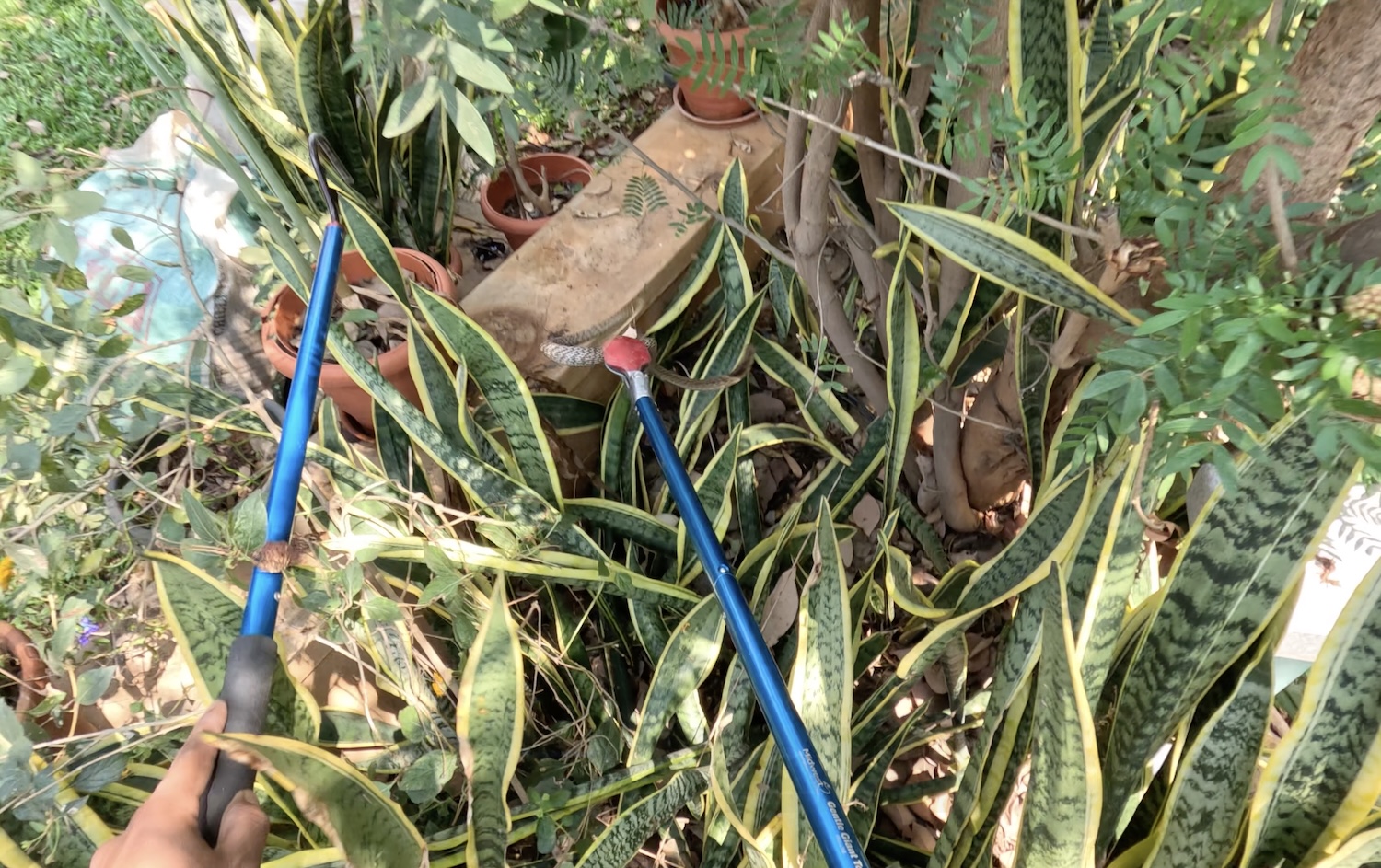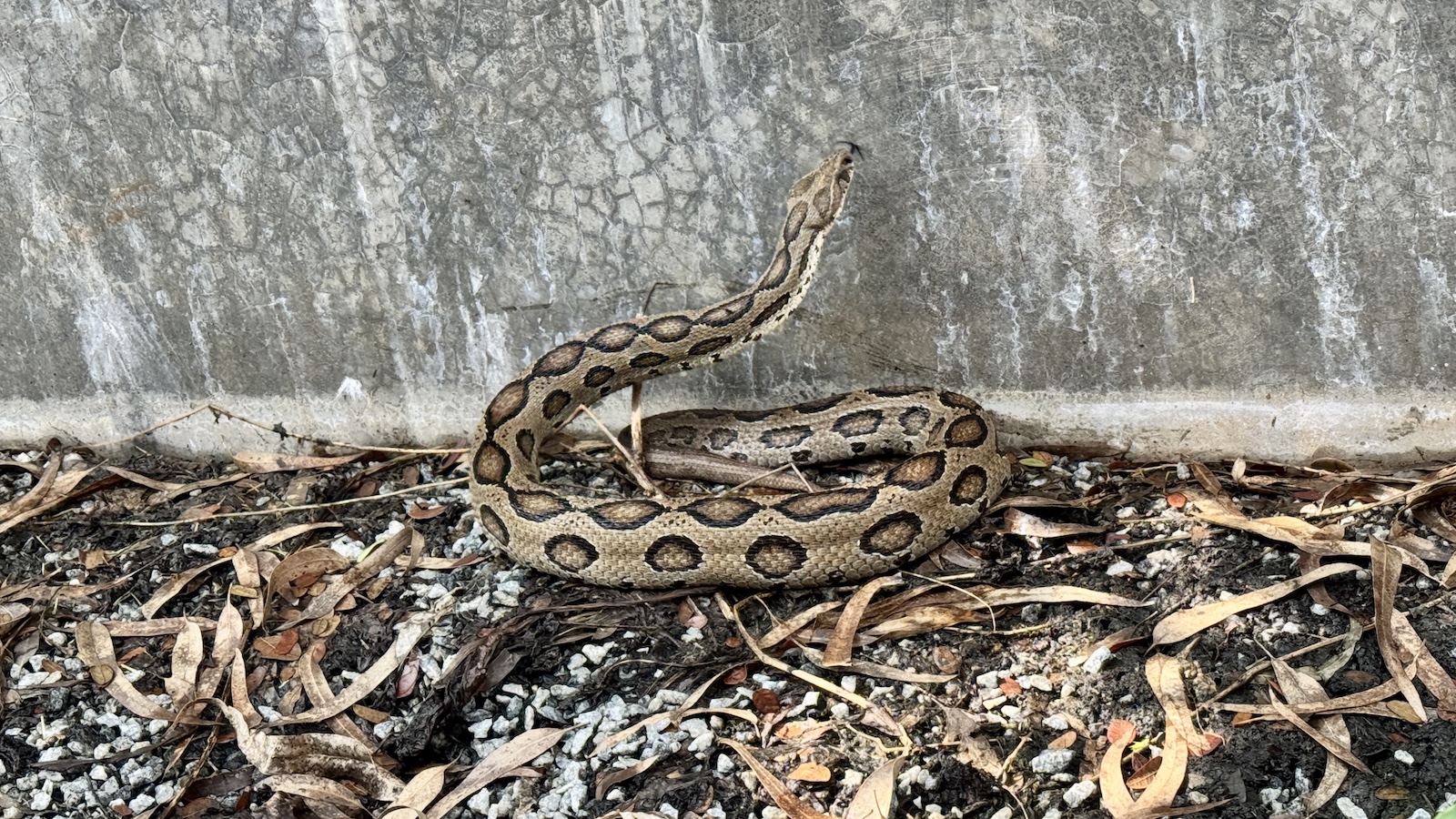There’s an old wives’ tale that snake plants, also known by their slightly sassier name, mother-in-law’s tongue, are excellent for repelling snakes. Apparently, the logic goes: snakes will respectfully keep their distance if it has “snake” in the name.
Well, someone forgot to tell that to the spectacled cobra I rescued this week.
This impressive reptilian visitor had coiled itself comfortably between the snake plants in someone’s front yard—ironically, the very plants that were supposed to send out anti-snake vibes. And if that wasn’t enough of a plot twist, mid-rescue, the cobra decided to regurgitate its last meal: a rather unfortunate frog.
Breaking this down.
Myth: Snake plants repel snakes
Reality: They don’t.
Snake plants (Sansevieria trifasciata) are hardy, air-purifying, and virtually impossible to kill—which might explain their popularity in Indian households and their nickname, mother-in-law’s tongue. But despite the association with snakes in name and leaf pattern, they have no scientific basis for repelling snakes.
They offer thick, upright foliage, shady corners, and tight spaces—a real estate ad for reptiles, especially in hot weather. To a snake, that’s not a red flag; that’s a luxury villa.
Bleah
Snakes sometimes regurgitate their prey when they’re under stress or feel threatened—usually when they’re trying to escape and need to be lighter and faster. It’s the herpetological equivalent of dropping your backpack while being chased.
In this case, the cobra probably ate the frog not long before I arrived, and the stress of being picked up, moved, and forcing into the pipe was enough for it to give up lunch.
So…
- Snake plants are great for your home’s air quality and aesthetics, but don’t count on them for pest control of the legless kind.
- If you find a snake around them, it’s not a betrayal by the plant—it’s just nature being nature.
- And if you ever see a snake regurgitate, don’t panic—it’s not possessed, it’s just making a very dramatic exit.
Until next time, stay safe, stay curious, and maybe don’t rely on plant-based security systems for your herpetological needs.




